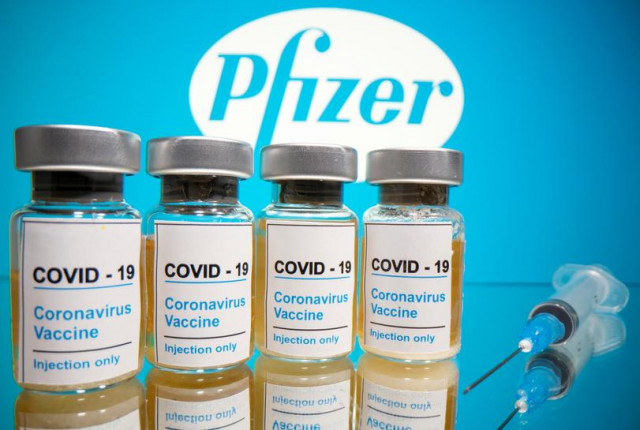Pakistan to buy 21 freezers for Pfizer jabs
Ultra-cold freezers have capacity to maintain temperature at -70° C

The federal government has decided to buy 21 ultra-cold freezers for the storage of Pfizer’s Covid-19 vaccines. According to sources, the freezers will have the capacity to maintain temperature at -70° Celsius.
According to a UN report, the Pfizer jab requires long-term storage at -70°C while Moderna’s must be kept at -20 °C long term. Both of them can last for shorter periods in a regular refrigerator, where temperatures are between 2°C and 8°C.
The Oxford/AstraZeneca vaccine can be stored and transported long term at regular fridge temperatures. Maintaining temperature is essential for keeping the Pfizer vaccine effective. That is why provision of ultra-cold freezers is extremely important, said an expert.
The sources said Pakistan will start receiving Pfizer’s jabs by the end of March or by the start of April. The country will receive millions of vaccines from the company.
Rolling out Covid-19 vaccines on a global scale will require an enormous expansion in capacity of the global cold chain, the linked system of infrastructure that allows a product to move from its site of production to final destination while remaining appropriately chilled.
Read more: Pakistan to exempt ‘import of Covid vaccine from price caps’
“The vaccination against Covid-19 is an inflection point that will determine how cold chains are handled on a global scale for the next two decades,” said United Nations Environment Programme (UNEP) Director for Economy Division igia Noronha.
The UN report said in many developing countries, the technologies are sparse, and experts believe the demands of a Covid-19 vaccine could finally lead to long neglected investments in their cold chains. They warn, though, against quick and dirty solutions.
“It can go in three directions,” said University of Birmingham Professor Toby Peters.
“One is that we solve the problem, but we do it in a way which is financially and environmentally inefficient. Or, we do it in a way which is a little bit greener. Finally, we can solve it in a way which actually has a lasting legacy,” he said.


















COMMENTS
Comments are moderated and generally will be posted if they are on-topic and not abusive.
For more information, please see our Comments FAQ